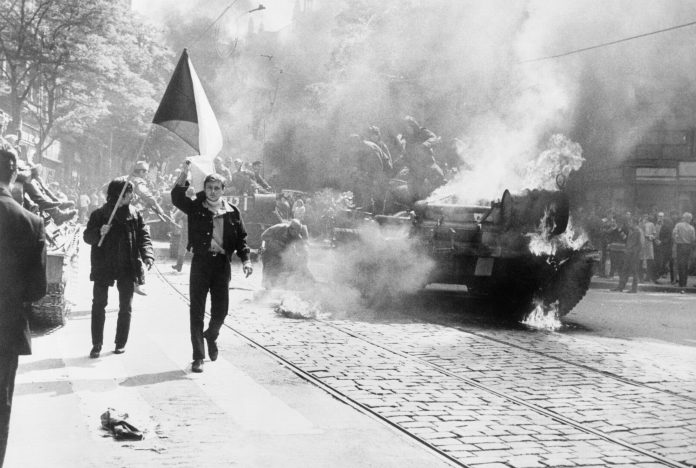Czech President Milos Zeman did not attend any events scheduled this month to mark the 50th anniversary of the invasion of Czechoslovakia by Warsaw Pact troops to crush the Prague Spring.
In his place for the occasion, Czech Television announced it would take the rare step of airing a speech by the president of neighbouring Slovakia, Andrej Kiska.
As reported by Radio Free Europe/Radio Liberty (RFE/RL), the decision has highlighted one of the most contentious elements of the 73-year-old Zeman’s five-year tenure as head of state, including criticism of senior advisers’ apparent ties to Russia and his own repeated calls for a rollback of Western sanctions and improved relations with Russia.
“Zeman is a disgrace,” Jan Navratil, a 48-year-old Prague social worker told RFE/RL at an August 20 demonstration outside the Russian embassy to register unhappiness with Moscow over events in 1968 and, more recently, its invasion of Ukraine.
“Here we have one of the darkest days in our country’s history, and the president cannot make a statement or lay a wreath anywhere to mark the day?” Navratil said. “What kind of leader is that?”
In a separate report, the Agence France-Presse (AFP) noted that hundreds paid tribute to the victims of the 1968 crackdown at noon ceremonies in central Prague that also drew demonstrators chanting “Shame!” as populist billionaire Prime Minister Andrej Babis spoke.
His minority coalition is the first government since the 1989 collapse of communism to rely on backing from the Communist Party to survive in parliament.
A Communist Party member in the 1980s, Babis has denied allegations that he served as a regime secret police agent before 1989.
“He who governs with the Communists disrespects the victims of the occupation of 1968!” read posters held by protesters in front of the radio station in downtown Prague where around 15 unarmed people, mostly youths, died trying to prevent the Soviets from taking the building 50 years ago.
In Brussels, European Commission chief Jean-Claude Juncker issued a statement on August 21. “Let us use this day of solemn commemoration to collectively remember that freedom and the respect for human rights can never be taken for granted and need to be fought for every single day”.
EU Council President Donald Tusk said on Twitter that while the Soviet invasion crushed the Prague Spring, “the desire for freedom and democracy survived and is the essence of what unites Europe today”.

